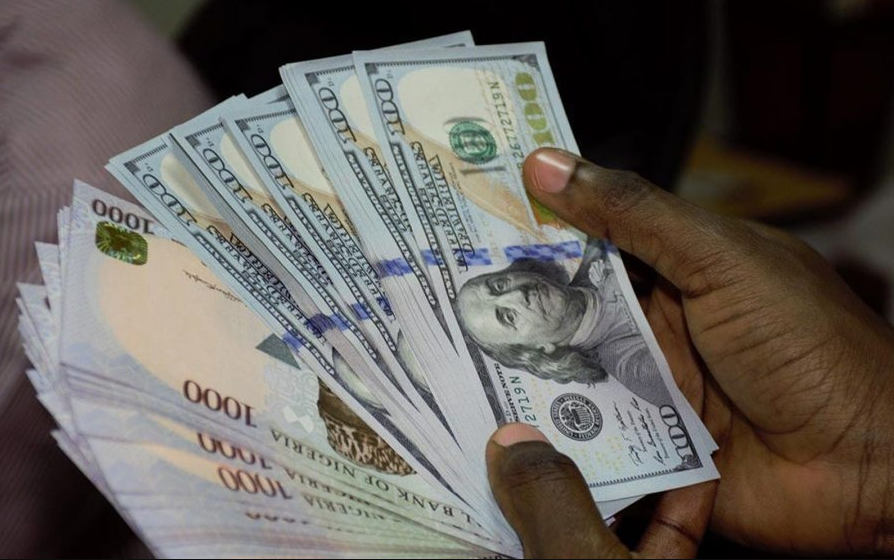The devaluation of the Naira in June 2023 caused quite a shock in the Nigerian business environment with many companies accruing losses due to their foreign exchange exposures.
It is estimated that these foreign-owned subsidiaries trading in the Nigerian Exchange have accrued over N900 billion in foreign exchange losses as of the nine-month period ending September 2023.
Foreign-owned subsidiaries are companies whose controlling shareholders are foreign companies. Examples of these include Airtel Africa, MTN Nigeria, Unilever Nigeria, International Breweries, Nigerian Breweries, Cadbury Nigeria, Lafarge Africa, AXA Mansard, Stanbic IBTC Holdings, Guinness Nigeria, TotalEnergies Marketing, Nestle Nigeria, PZ Cussons Nigeria, and Beta Glass, among others.
According to information available to Nairametrics, Airtel Africa suffered the highest loss among these companies.
During the half-year ending September 2023, Airtel accrued a foreign exchange loss of $471 million which amounted to N404 billion (exchange rate of N858/$). This loss caused the company to record a loss after tax of $13 million during H1 2024.
Another company that experienced a remarkable foreign exchange loss during the period under consideration was MTN Nigeria.
MTN Nigeria, a subsidiary of MTN Group accumulated N232.8 billion in FX losses during the nine months ending 2023, marking a 735% year-on-year growth from the same period in 2022.
For most of the foreign-managed companies trading on the Nigerian Exchange (NGX), the currency devaluation caused unrealized FX losses. While for some, it created gains, an example being insurer, AXA Mansard which recorded a foreign exchange gain of N3.63 billion during the nine months.
Nestle Nigeria also accrued a net foreign exchange loss of N122.9 billion, which contributed to the company’s pre-tax loss of N56.7 billion during the nine-month ending September 2023, representing a 197% year-on-year decline from the corresponding period in 2022.
Even though Nestle recorded an 18.9% year-on-year growth in revenue, the huge FX losses plunged the company into a precarious financial situation as the company recorded negative equity during the period.
Another company with a similar fate to Nestle Nigeria is Nigerian Breweries, as the company recorded FX losses of N86.8 billion during the nine-month ending September 2023.
The company’s net loss on foreign exchange transactions accounted for 82% of the company’s finance costs for the nine months ending September 2023.
It also drove the company to a net loss of N57.2 billion during the period.
Other notable mentions
Cadbury Nigeria Plc – FX losses of N1.03 billion
International Breweries Plc – FX losses of N38.83 billion
TotalEnergies Marketing Nigeria Plc – FX losses of N6.31 billion
Unilever Nigeria Plc – FX losses of N2.92 billion
Guinness Nigeria Plc – FX losses of N1.40 billion
GSK Consumer Nigeria Plc – FX losses of N11.29 billion
Lafarge Africa Plc – FX losses of N9.42 billion
What you should know
Companies with foreign parent groups are prone to accruing a lot of trade payables denominated in foreign currencies as they import a substantial portion of their inventories.
Hence the devaluation of the Naira has created a situation of unrealized FX losses for most of them.
For example, Unilever Nigeria suffered a loss of N6.3 billion due to a revaluation of its foreign-denominated trade loans.
Another attributable factor is foreign currency borrowings. For example, Guinness Nigeria accrued a finance expense of N439.6 million due to foreign exchange borrowings in the quarter ending September 2023.
However, some companies protect themselves from FX fluctuations by hedging with FX futures. One such company is Stanbic IBTC Holdings which has increased its FX futures assets to N309.2 billion as of September 2023, representing a 1247% year-to-date increase.
Without a doubt, the FX losses are attributed to the abrupt and humongous drop in the value of the Naira on June 14, 2023.
And this effect has been well represented in the financials of the companies listing on the Nigerian Exchange. Hence, there should be light at the end of the tunnel with respect to Q4 2023.
However, the recent volatility and consistent decline of the Naira is another cause for concern.
Over the past two weeks, the Naira’s exchange rate has consistently swung between N750/$ and N900/$ at the official market, even hitting N996 at a point.
However, the currency has consistently stuck around the N1100/$ mark in the parallel market. The consistent pendulum swing of the Naira is a potential source of another set of humongous FX losses among these companies.
